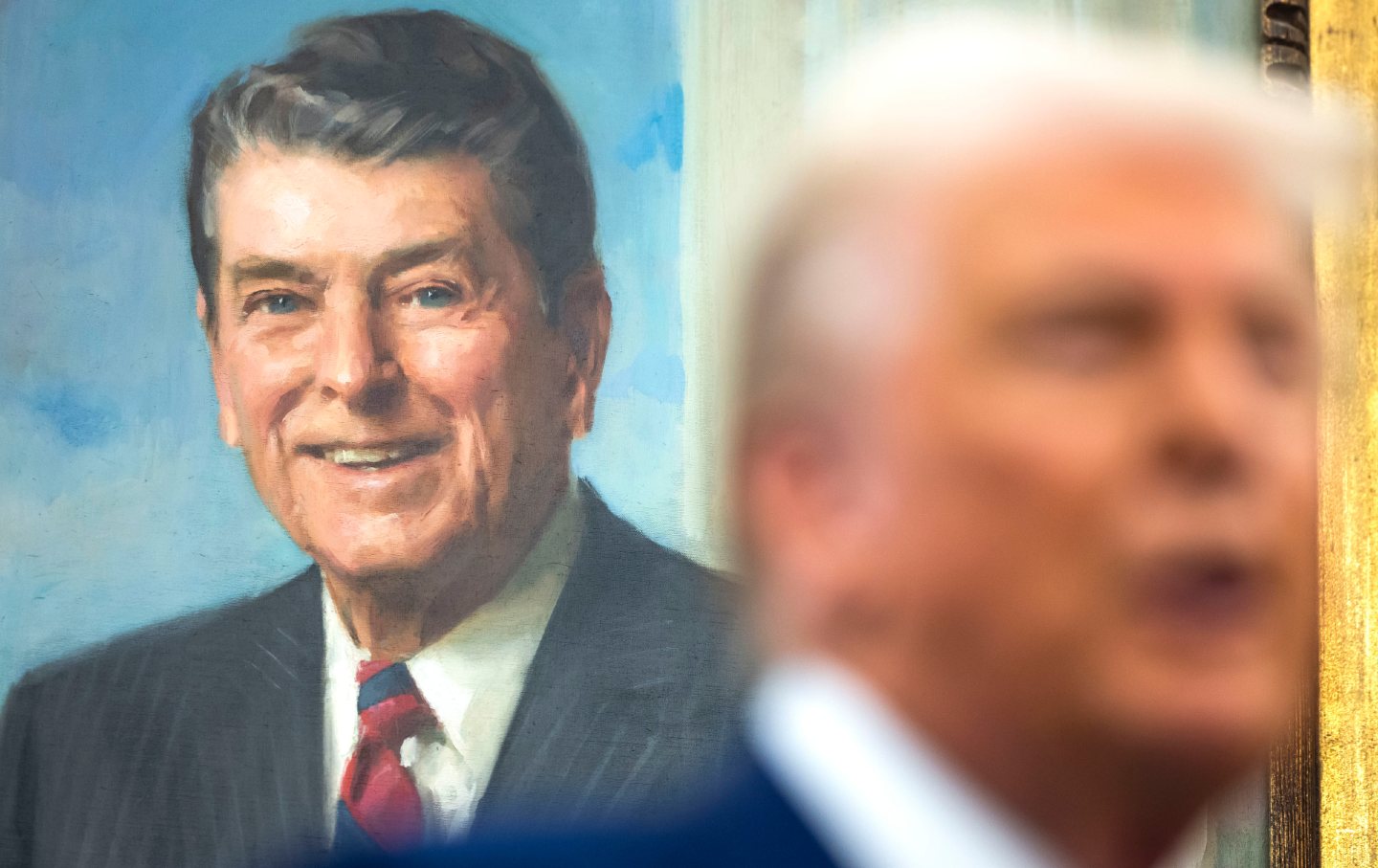
"In the winter and spring of 1981, Ronald Reagan took office and pushed through a massive tax cut, domestic spending cuts and military spending increases—a supply-side revolution, while Federal Reserve Chair Paul Volcker jacked up interest rates."
"The CBO projects that Trump's tax cut will add $4.1 trillion to the national debt—but that's only based on the absurd premise that the 2017 tax cuts would otherwise expire."
"Spending cuts are a serious blow to Medicaid and SNAP, but small in relation to the economy. Likewise military increases."
"Trump has taken credit for the economy from day one, in line with his general worldview, but also reflecting the trend toward magical thinking in economics since the 1980s."
The Reagan administration implemented large tax cuts and military spending increases, while raising interest rates, leading to recession. Trump's tax cuts are projected to add significantly to the national debt, although they are a minor adjustment rather than a fundamental change. Spending cuts to Medicaid and SNAP are notable but not drastically impactful on the economy. Tariffs under Trump are protectionist, affecting producers and consumers differently, while Trump's administration has taken credit for economic performance from the outset, reflecting historical trends in economic policymaking.
Read at The Nation
Unable to calculate read time
Collection
[
|
...
]